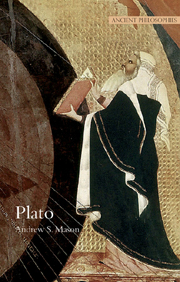
- This book is no longer available to purchase from Cambridge Core
- Cited by 6
-
Cited byCrossref Citations
This Book has been cited by the following publications. This list is generated based on data provided by Crossref.
2010. Books Received. Philosophy, Vol. 85, Issue. 4, p. 585.
MORRIS, T. F. 2013. Is Plato Really in Favour of Monotonous Literature?Republic392c6-398b9. Dialogue, Vol. 52, Issue. 3, p. 491.
Hibbs, Carolyn 2014. Encyclopedia of Critical Psychology. p. 94.
Press, Gerald A. 2018. The State of the Question in the Study of Plato: Twenty Year Update. The Southern Journal of Philosophy, Vol. 56, Issue. 1, p. 9.
Kotsonis, Alkis 2020. What can we learn from Plato about intellectual character education?. Educational Philosophy and Theory, Vol. 52, Issue. 3, p. 251.
Kotsonis, Alkis 2021. The Platonic conception of intellectual virtues: its significance for virtue epistemology. Synthese, Vol. 198, Issue. 3, p. 2045.
- Publisher:
- Acumen Publishing
- Online publication date:
- February 2013
- Print publication year:
- 2010
- Online ISBN:
- 9781844654352
- Subjects:
- History of Philosophy, Philosophy
- Series:
- Ancient Philosophies


